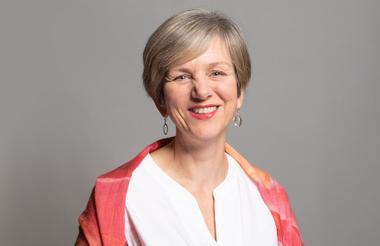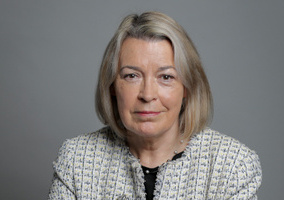Lilian Greenwood was appointed Labour’s shadow minister for arts, heritage and civil society last month following opposition leader Keir Starmer’s reshuffle.
With the next general election set to be held by January 2025 at the latest, Greenwood says she is on a “very steep learning curve” and that she aims to develop a “relationship [with civil society] pretty quickly”.
Four weeks into the role, Greenwood sat on several panels with civil society leaders at the Labour Party conference and aims to publish a strategy for the charity sector before the next election.
‘I think the charity sector feels directly under threat’
Greenwood says she thinks the relationship between civil society and government varies.
“The impression I get is that sometimes government wants charities’ involvement but they don’t always ask for it at the earliest stage,” she says.
“I get the feeling that there’s sometimes consultation but definitely not co-creation. I get the sense that the relationships are good in some places but not in others.
“I think the charity sector feels, in some cases, really directly under threat around their campaigning role. That is clearly a major point of contention with certain members of the current Conservative Party, if not the current government.”
Greenwood told an audience of charity leaders at a Labour Party conference fringe event: “We might not always like what you say, but we absolutely respect your right to say it.”
Working with charities a ‘no-brainer’
Greenwood says she expects charities to campaign and lobby government.
“I’ve sensed from the sector that there is a real willingness to work together, that they feel that they have a really important role in helping Labour to deliver on its mission.
“I can see that they have a hugely important role. It’s a bit of a no-brainer that charities who are changemakers – that are created specifically because they’ve seen a problem and set about mobilising people to fix it – are people that we would want to work with.
“So, of course, I'd expect for them to come tell me what they want and lobby. We’re not always going to agree and we're not always going to be able to deliver, but I hope we can have a good relationship so that we can work together.”
‘It’s about respecting civil society’
Greenwood says the relationship between civil society and government can improve by working in partnership with one another.
“It’s about wanting to work in partnership with civil society to want to develop a new strategy, and for civil society to be part of developing what that partnership looks and feels like.
“But I think also, for me, it’s about respect. It’s about respecting the role that civil society plays, both valuing it, not taking it for granted and having them be part of helping Labour to deliver on its mission.
“I’m respecting their role in speaking truth to power because I think that’s enormously important. They are independent, and that independence is something to be valued.”
Priorities as civil society minister
Greenwood is asked what she would do first as civil society minister if Labour were to win the next election, which she says is “quite a difficult question four weeks in”.
“What I do know is that there are loads of ideas in the sector about the things that we should do,” she says.
“And it isn’t just going to sit with me – I know that Keir Starmer wants us to have a great relationship with civil society and wants us to have a civil society strategy.
“We have to make sure that is embedded across all departments so that everyone sees civil society as important in delivering our mission.
“I’m hoping that we’ve got that in place before a general election, so we’ll be able to know what we want to do if we get into power.”
Unlike her predecessor as shadow civil society minister, Barbara Keeley, Greenwood’s brief includes heritage as well.
When asked how she can ensure the sector gets enough of her attention, Greenwood says civil society has been “front and centre” of the fringe events she had been attending at the conference.
“A lot of the organisations that are working around the issues of heritage and arts as well are civil society organisations. So, I think that they fit together quite well.”
Would civil society move to the cabinet office?
Civil society had a place in the cabinet office until 2016 when it was formally transferred to the Department for Culture, Media and Sport (DCMS).
When asked if a future Labour government would move the sector back to the frontbench, Greenwood says her party is currently mirroring the Conservative’s governmental structure and “it’s not my decision where that sits”.
“Even if the brief sits in DCMS, that interest in working with civil society, the willingness to harness the skills of civil society, the expertise, evidence and ways of doing things differently doesn’t belong in one department. That needs to be spread across every department, including the Treasury.
“So that’s a conversation that I’m going to be having with my colleagues. But it’s not for me to say exactly where we sit for a future Labour government.”
Would Labour provide more funding for the sector?
Greenwood cites that shadow chancellor Rachel Reeves has “been absolutely clear about the importance of fiscal discipline” so if Labour does form the next government it has to ensure every pound is spent “to maximum effect”.
“If we form a government next year, we are inheriting a very difficult financial and economic situation. For the last 13 years of sluggish growth and huge cuts to our public services means there'll be enormously high expectations of what people want to achieve.
“One of the things I have really picked up this week from talking to the sector is that there are great ideas out there about how to make the very best use of every pound and how to bring in additional funding that is coming direct from government.
“Those are some of the issues that I want to explore to make sure that we are really getting the very best bang for our buck, and I think we do that by working together.”












